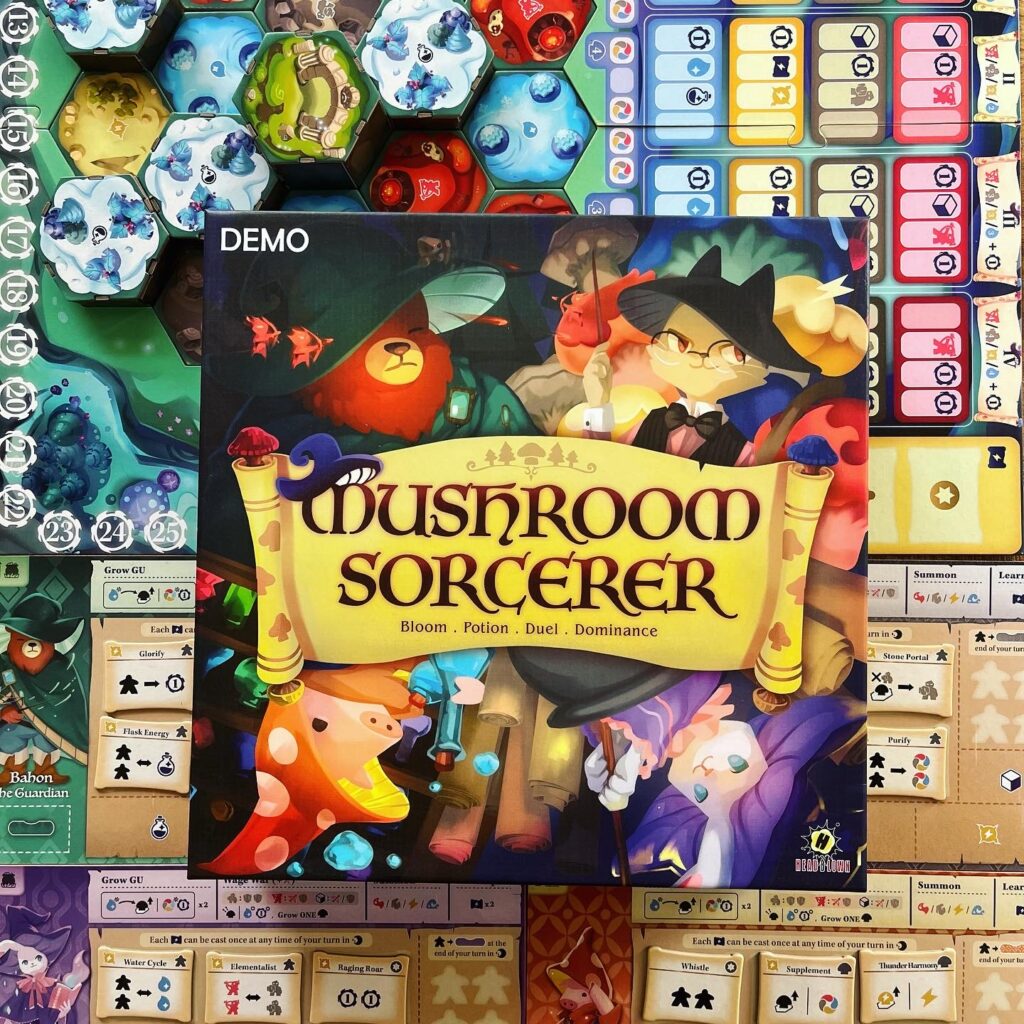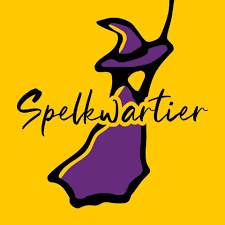We begin our story in Elementis: a land that was blessed with mystical elements and ancient magic. Because of its magical and elemental powers, Elementis is valuable but vulnerable – and it therefore must be guarded by the one magical grandmaster: the Great Sorcerer. An honourable title that young sorcerer’s apprentice vie for but most can only dream of. Fortunately, every once in a while, the young wizards and witches get the chance for title succession! Every duo luna year, the Great Sorcerer Tournament takes place in the Enchanted Forest. The prize? The winner learns the secrets to magical mastery of the elements and gains the title of new Great Sorcerer! The competition in this tournament is dangerous (don’t let the cutesy forest animals fool you) and mere bravery does not guarantee your victory or even survival – players must tactically create large towers made of mushrooms (so-called GUs), attack each other, collect spells and become masters of the elements to win. Which player will play the most enchantingly for a magical victory in Mushroom Sorcerer – and who will just fiddle around having fun(gus)? Try not to leave any (mush)room for the other players!

Mushroom Kingdom can be compared to a relatively simple, colourful 4X game with a friendly forest animal and magical mushroom theme. 4X stands for: Explore, Expand, Exploit and Exterminate. In Mushroom Sorcerer, players try to gain the most influence over the forest or the victory of the moon to claim victory and be crowned Great Sorcerer. The forest (the game board) consists of various boards, tiles and 3D terrain. In this forest, players build towers and place their servants to collect resources and attack other players to control elements to collect more resources and then to build more towers, attack other players, build more towers to control more elements and so on. Players try to make combos through their various actions and in this way build a machine to earn the most points. Therefore, the game can be compared with Stonemaker games such as Scythe and Tapestry, where players also try to connect as many combinations of actions as possible.
Mushroom Sorcerer is played in different phases. In the day phase (with the exception of the first round), players receive drops based on the amount of bottles they have collected (drops are a currency to build towers with) and they can choose a special ability that applies for the rest of the round. Each player has a unique set of attributes to choose from, giving Mushroom Kingdom an asymmetrical element (pun intended). During the night phase, players can take turns performing one action until all players have performed three actions. Players can perform the following actions:
- Buy 2 spells: By buying spells, players unlock special abilities. Some spells consume mana and some spells can only be used once.
- Build 2 GU Towers: Players can also build up to 2 levels of towers during their turn. They can build on a tower they control or start a new tower in unoccupied land. Towers can get up to 4 levels high. The higher the level, the more expensive the building, but higher levels also bring higher rewards. Each time you build a tower, you advance on the element track of the corresponding element of the level you built. By advancing on an element track, players can earn bonuses such as influence points, resources, dice to use during battles and more resources.
- Use elements: Players can choose an element and get corresponding resources depending on its position on the track.
- War: If players have servants (actually a type of resource) on a tower, they can attack adjacent towers of other players. Attacking and defending power is based on the available servants and dice. If you have more attack power than defence power than your opponent, you can destroy levels of his tower for influence and possibly to continue building yourself.
During a turn, players can move their servants, levels and cast spells in addition to the aforementioned actions.
By gaining control over the towers, players can build higher levels to gain more control over the elements and thus more resources and influence. Players have to take into account many different components and gameplay elements. This makes the game particularly suitable for experienced players who want to play a challenging and extensive game in a friendly setting. The game is beautifully designed and attracts a lot of attention with its table presence. We were allowed to test a prototype, which meant that some of the cardboard components were sometimes still a little bit fiddly, but that did not spoil any of the fun and this will obviously be rectified in the production version. Mushroom Sorcerer offers players enough variation, many choices, different tactics and a possibility to really make use their brains and make combos.









